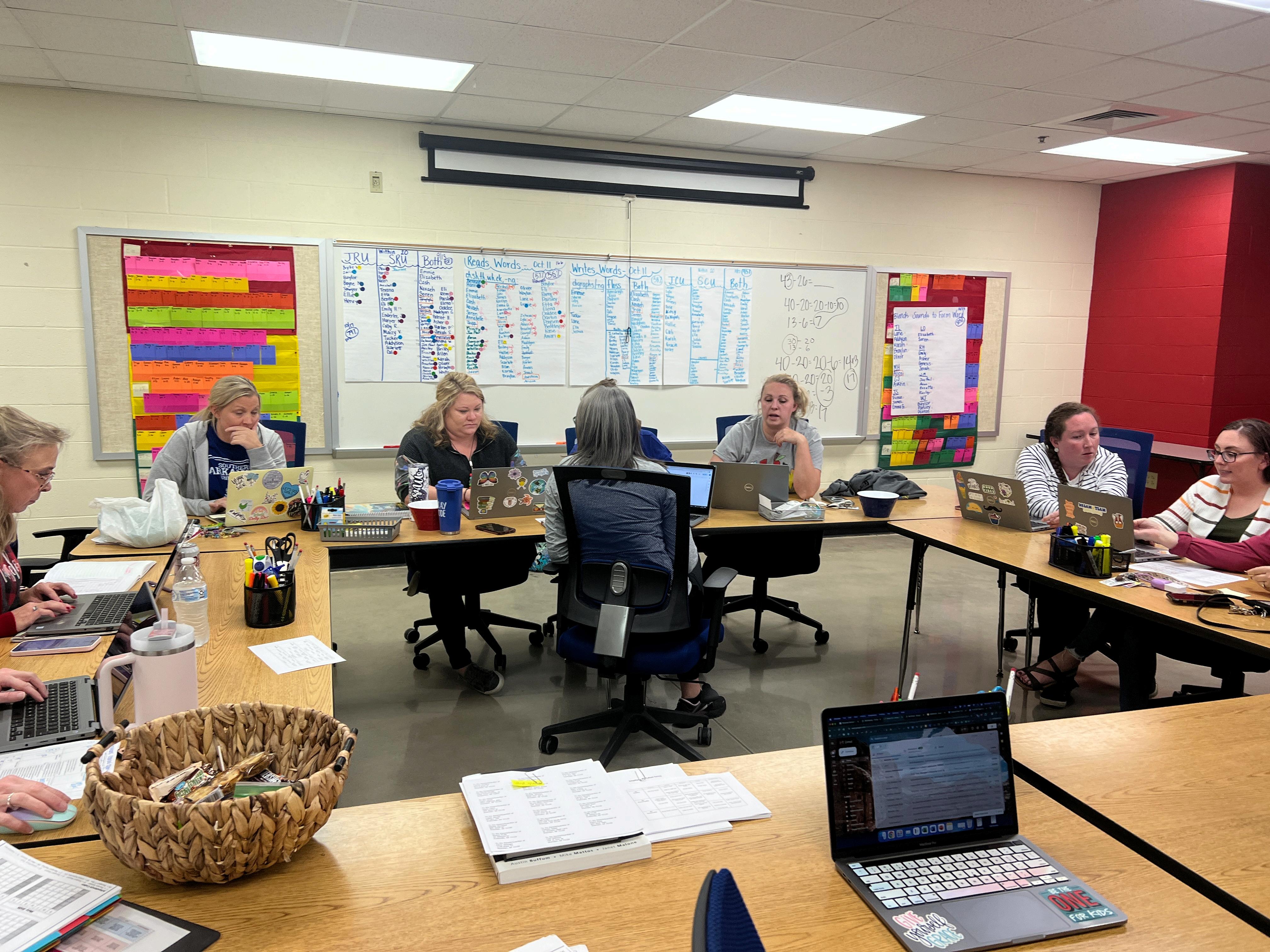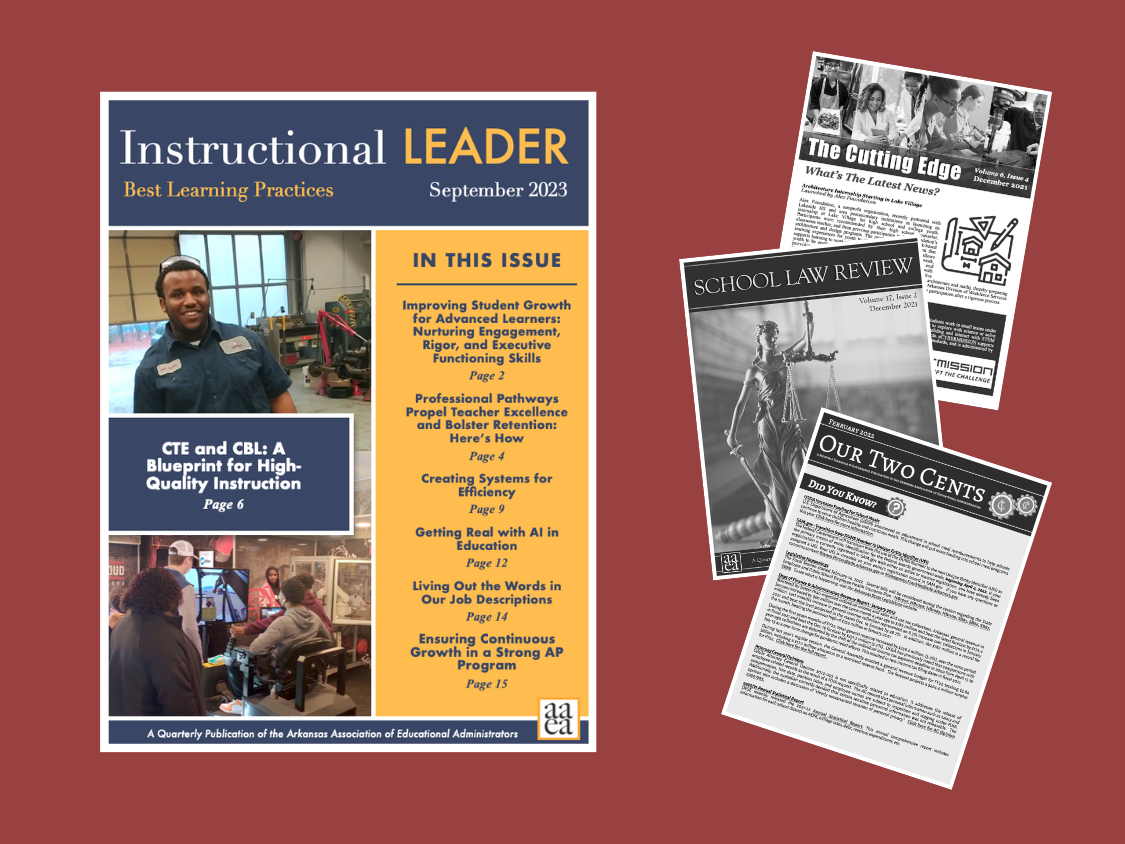
5 minute read
Publication Sneak Peek
Instructional Leader
This segment features content from other AAEA publications. Instructional Leader is a quarterly publication available to subscribing districts. The following excerpt comes from the December 2023 issue.
Inclusive Practices For All
Contributor: Dr. Lindsey Bohler, Principal, Sheridan Elementary School
Supported by Taylor Thomas, 2nd Grade Teacher, Jennifer Sanders, 1st Grade Teacher, and Kelsie Knowles, Resource Teacher
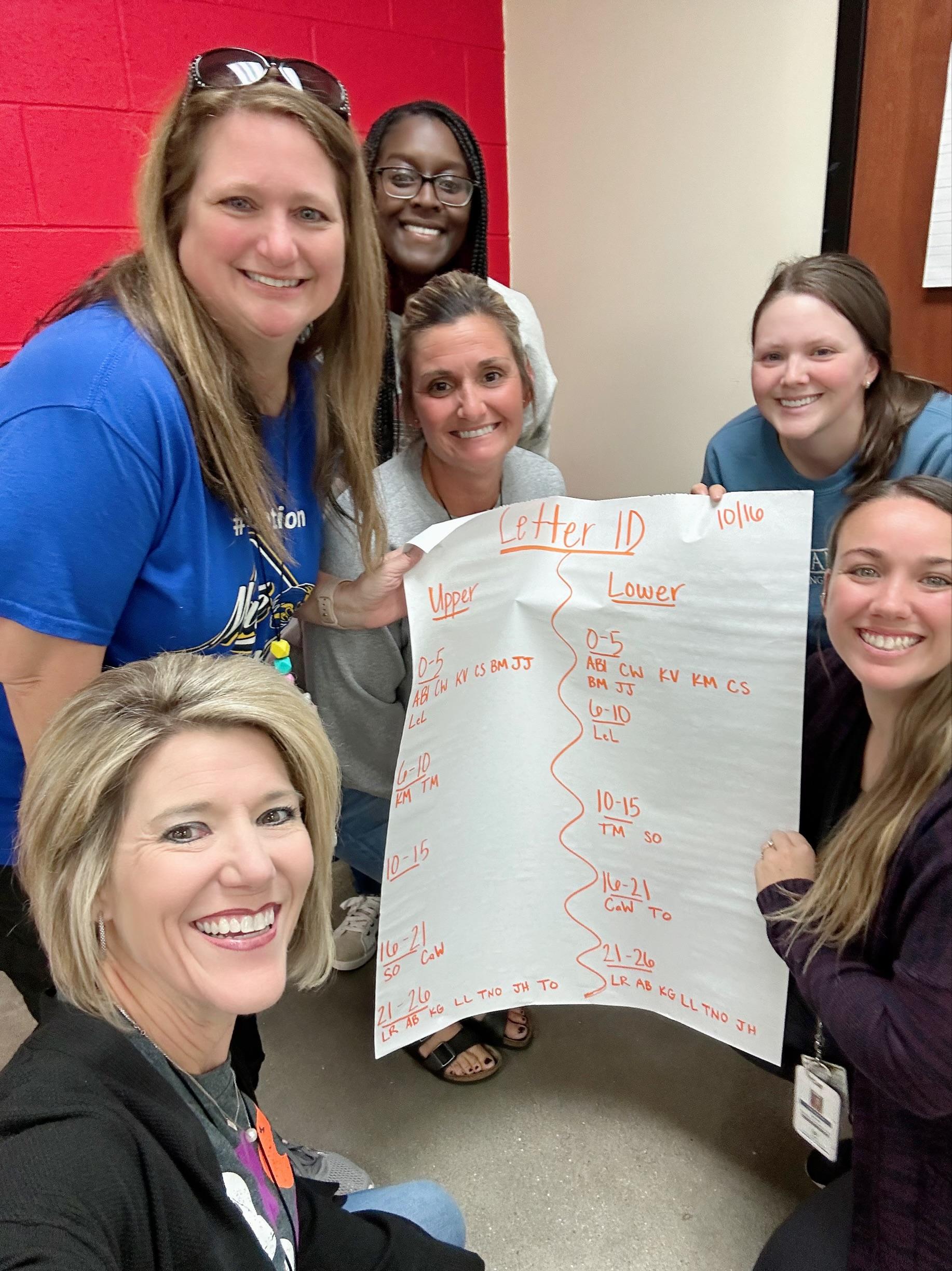
Fostering a learning culture for all begins by creating an environment where all staff members feel valued and supported. When staff members are motivated, they are more likely to contribute positively to the learning culture of the school, creating a supportive and dynamic environment for students. The support and motivation foster a sense of ownership and commitment to the school’s goals. Emphasizing a growth mindset and celebrating achievements of both students and staff ensure a positive and inclusive learning
Collaborative efforts involve teachers, administrators, and support staff to ensure a coordinated approach in providing interventions and extensions for students. This includes regular collaborative team meetings, sharing observations and insights, gathering resources, and aligning strategies to address students’ needs. A collaborative approach maximizes the impact of interventions and fosters a supportive learning environment.
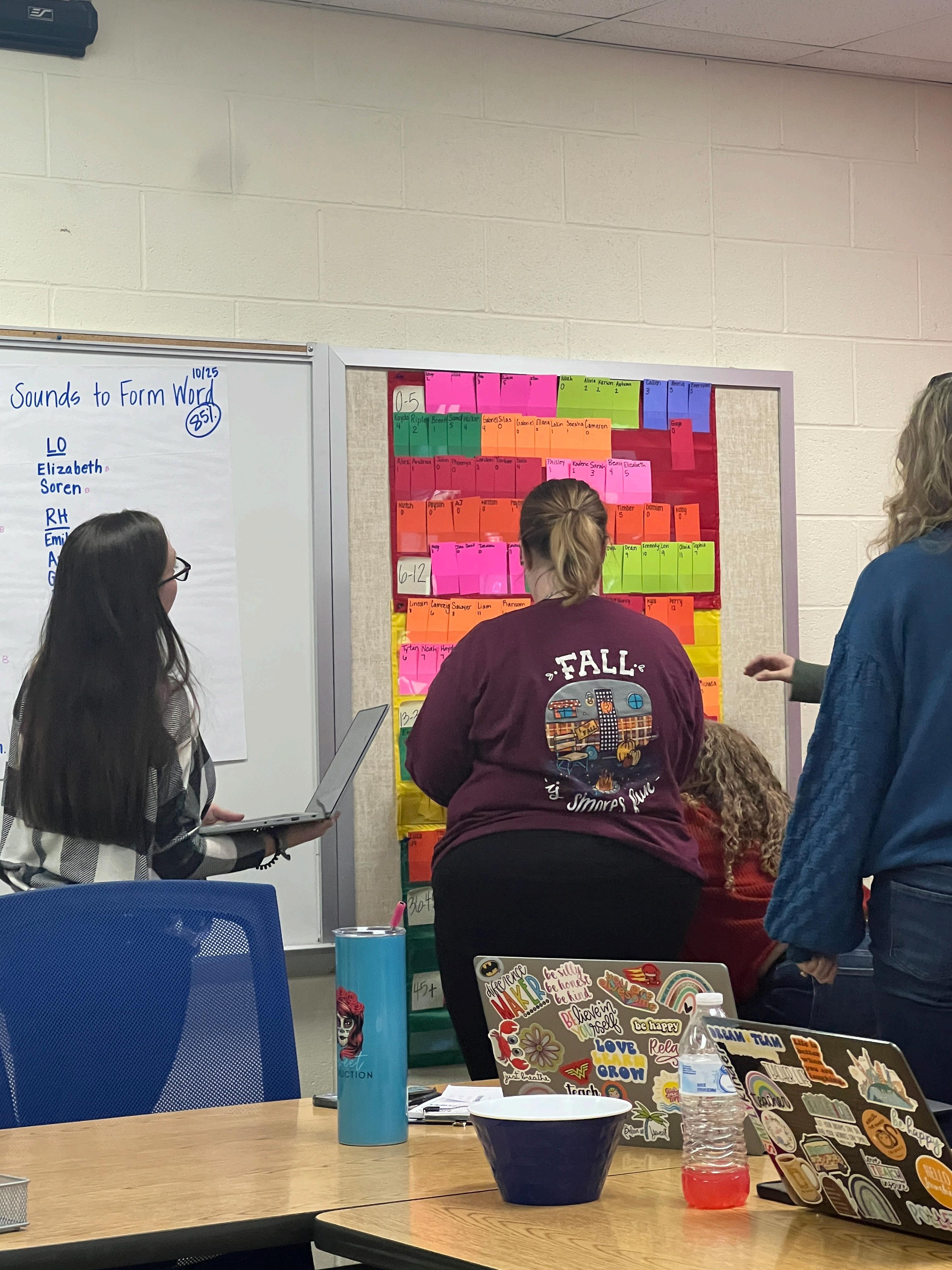
All Means All
Ensuring that every student has the opportunity to learn and succeed should be the top priority of every school. Assuming that all students can learn at high levels if given the support and resources. This mindset does not come easy to most classroom teachers, let alone an entire staff of 50 at an elementary school of 550 students. Sheridan Elementary School has worked hard to embrace the responsibility of ensuring that all students can and will learn at high levels. We hold the belief that our efforts can positively impact our students, and with guidance and support, every student can attain the expected grade-level proficiency.
Master Schedule
Our master schedule is tight. Tier 1 instruction is the priority. Tier 2 is required. Tier 3 is essential. Three days a week, all students participate in Math Jacket Time-Tier 2 instruction. This 30-minute block provides students with individualized support based on how they performed on their common formative assessments. During this time, all students are provided with the support and resources they need to be successful in the classroom. Math Jacket Time is scheduled when all staff members, including the speech therapists, resource teacher, librarian, counselor, instructional assistants, assistant principal, and literacy interventionist, are able to provide interventions and/or extensions.
On the same three days of the week, all students in 1st and 2nd grade attend Phonics Jacket Time based on their literacy needs. This block looks different from Math Jacket Time because it does not include all staff members. However, the teacher delivering support services through an IEP collaboratively engages in four distinct inclusion classrooms.
Collaborative Team Meetings
When all support staff are responsible for providing interventions and/or extensions, it is just as important to include them in the collaborative team meetings where they take part in the sharing of instructional strategies to support students. Team collaboration meetings take place every week, lasting one hour at the end of the day. This time is dedicated to aligning strategies to address students’ needs that involve ensuring that various interventions and teaching methods are coordinated and mutually reinforcing.
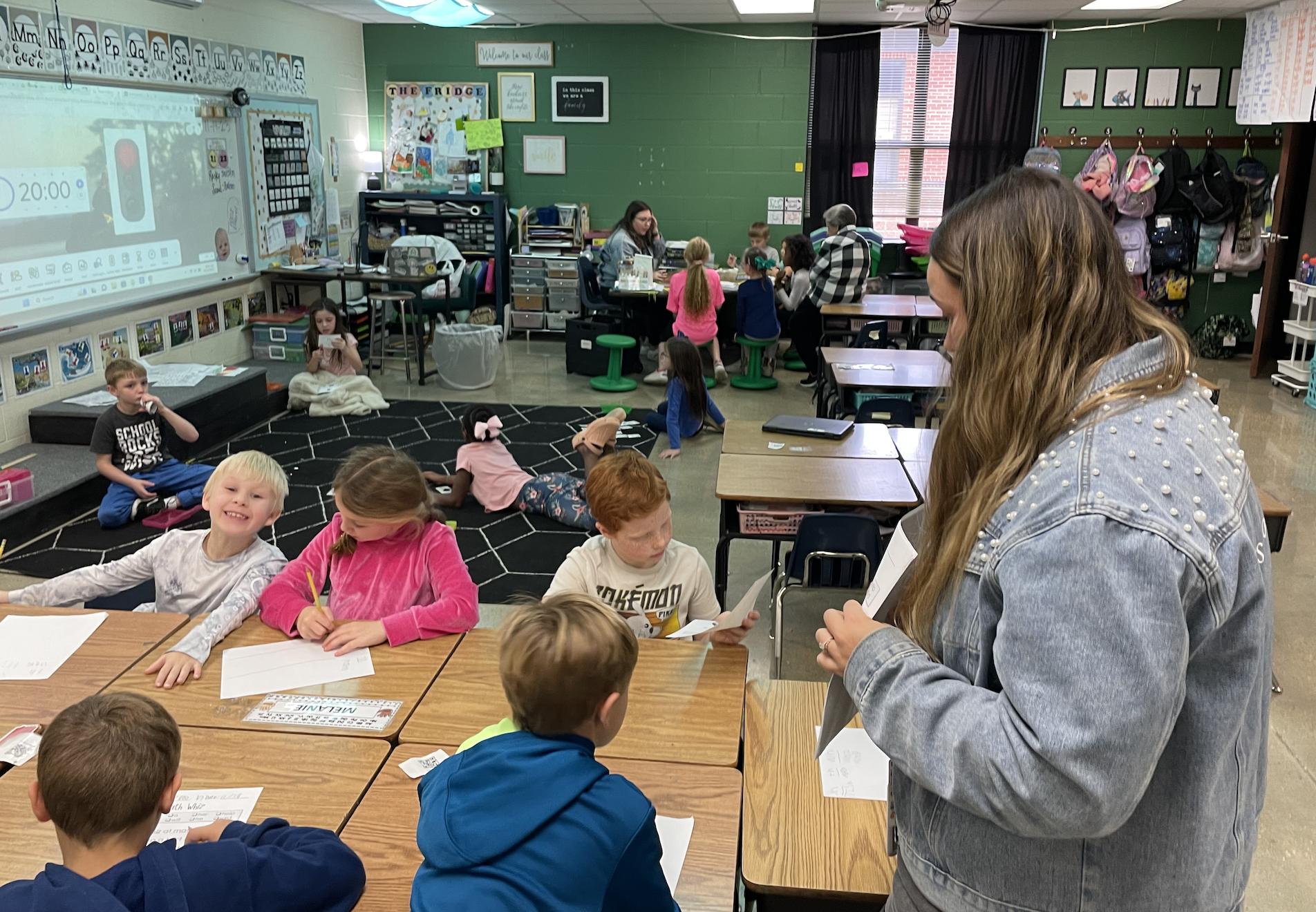
Each team has the same data-driven approach to identify specific needs and track progress by giving regular common assessments to help tailor strategies to individual students' needs. Teachers, support staff, and administrators collaborate to develop a unified plan that addresses academic needs by sharing research-based instructional strategies. Each student receives interventions and extensions for a minimum of 3-4 weeks before undergoing reassessment to track their progress. During these team meetings, we celebrate individual and team accomplishments. This creates a positive atmosphere and reinforces the importance of collective efforts.
Inclusive Practices
Inclusive design practices play an important role in creating a culture where all students have the same opportunities to learn and grow. Inclusion emphasizes providing students with the necessary support and resources to thrive regardless of their disability. Inclusive education can lead to improved academic outcomes for all students. Students with diverse learning needs benefit from varied teaching methods, and the support provided benefits the entire classroom.
This type of instructional planning is a teaching approach that recognizes and responds to the unique needs of each student. When thinking areas where a student may need additional support. During co-teaching, tailored interventions are designed for individual students or specific groups. This could entail both teachers collaborating with a small group, while other students engage in learning centers designed to address the specific skill targeted. Every 2-3 weeks, students are assessed to determine progress, and if they need to be moved to a new group to work on a new skill. Regular continuous assessments help the teachers to refine and adjust interventions as needed.
In conclusion, the commitment to fostering a comprehensive learning culture at Sheridan Elementary School is unwavering. From our emphasis on motivation, collaboration, and a growth mindset to the inclusive practices woven into our master schedule and collaborative team meetings, we strive to ensure that every student, regardless of their needs, has the opportunity to excel. By acknowledging and responding to the unique strengths and challenges of each student, we not only enhance their academic outcomes but also cultivate an environment where the collective efforts of our dedicated staff contribute to a positive and inclusive learning community. Through continuous assessments and tailored interventions, we remain steadfast in our belief that, indeed, "All Means All," and with persistence, guidance, and support, every student can reach and exceed expected grade-level proficiency.
